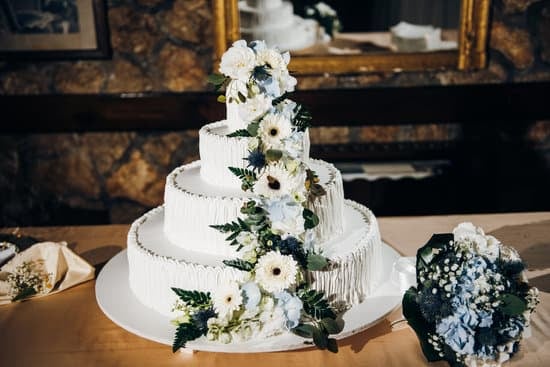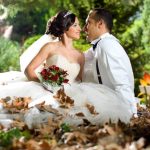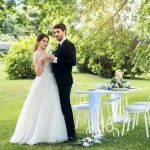Queen Elizabeth II’s wedding to Prince Philip, Duke of Edinburgh, has been the subject of much debate and speculation. The question of whether their marriage was arranged remains a topic of interest for historians and royal enthusiasts alike. In this article, we will delve into the background of Queen Elizabeth, the context of her engagement, the events leading up to the wedding, and the arguments for and against the idea that her marriage was arranged.
Queen Elizabeth’s upbringing in the royal family and the expectations for royal marriages in the 20th century provide an essential backdrop to understanding the debate surrounding her wedding. Additionally, examining the historical and political climate at the time of her engagement sheds light on the role of royal marriages in diplomacy and alliances.
The courtship between Queen Elizabeth and Prince Philip, as well as the decision-making process behind their engagement and wedding plans, will also be explored in this article.
As we explore various perspectives on Queen Elizabeth’s wedding, we will consider not only historical examples of arranged royal marriages but also evidence or quotes from Queen Elizabeth and Prince Philip about their relationship. Modern perspectives on their marriage will further inform our understanding of whether or not it was arranged. By delving into these different facets, we aim to offer a comprehensive overview of this intriguing topic.
The Background of Queen Elizabeth
Queen Elizabeth II, the longest-reigning monarch in British history, married Prince Philip, Duke of Edinburgh, on November 20, 1947. The question of whether their union was arranged has sparked much debate and speculation over the years. To truly understand the circumstances surrounding Queen Elizabeth’s marriage, it is crucial to examine her background and upbringing.
Born in 1926, Elizabeth was raised within the strict constraints of royal tradition and duty. Her parents, King George VI and Queen Elizabeth (later known as the Queen Mother), instilled in her a strong sense of responsibility and devotion to the monarchy. As a member of the royal family, Elizabeth’s life was governed by protocol and expectations that were deeply rooted in centuries-old customs.
During the early 20th century, royal marriages were often viewed as strategic alliances designed to strengthen political ties and ensure the continuity of the monarchy. The idea of marrying for love was not always a priority in such unions; rather, considerations such as lineage, religion, and diplomacy took precedence. Given this context, it is important to explore how these factors may have influenced Queen Elizabeth’s own marital prospects and eventual engagement to Prince Philip.
The Context of Queen Elizabeth’s Engagement
Queen Elizabeth’s engagement to Prince Philip was not just a personal affair, but it also held significant historical and political implications. At the time of their engagement in 1947, Europe was still reeling from the aftermath of World War II. The continent was divided, and diplomatic alliances were crucial for maintaining stability and peace. In this context, royal marriages played an important role in forging and strengthening these alliances.
The Historical and Political Climate at the Time
In the aftermath of World War II, European countries were seeking to rebuild and establish new relationships with one another. The British monarchy, as a symbol of tradition and stability, had an important role to play in these diplomatic efforts.
Queen Elizabeth’s marriage to Prince Philip of Greece and Denmark was seen as an opportunity to strengthen ties between Britain and other European nations. It was not simply a matter of personal choice; it had far-reaching implications for international relations.
The Role of Royal Marriages in Diplomacy and Alliances
Throughout history, royal marriages have often been used as instruments of diplomacy. By aligning themselves with powerful or strategically important families or nations through marriage, monarchs could secure alliances, territories, or military support. In Queen Elizabeth’s case, her engagement to Prince Philip was viewed through this lens. It was not just about two individuals coming together; it carried the weight of geopolitical considerations that would shape the post-war world order.
As such, while there may have been personal feelings involved in Queen Elizabeth’s engagement, it is undeniable that the decision held broader significance beyond their romance alone. The circumstances surrounding their engagement indicate that it was not purely a matter of love but also a carefully considered move within the larger context of post-war European politics.
The Events Leading Up to the Wedding
The decision-making process behind Queen Elizabeth’s engagement and wedding plans was a complex and deliberate one. Before marrying Prince Philip, Queen Elizabeth had known him since she was 13 years old. Their paths crossed multiple times at various royal events, but it wasn’t until the summer of 1946 that their relationship deepened. During this time, Philip spent several weeks with the royal family at Balmoral, which gave him the opportunity to spend more time with Elizabeth.
Despite their blossoming romance, there were still obstacles to overcome before they could be married. One major concern was Philip’s lack of financial stability and uncertain future as a naval officer. Additionally, his foreign roots (he was born into the Greek and Danish royal families) raised some eyebrows among certain members of the British establishment. However, it was clear to Elizabeth that she wanted to marry him and her parents ultimately gave their approval for the match.
The official announcement of their engagement came on July 10, 1947. The choice of engagement ring – a platinum band with a three-carat diamond – also sparked interest and discussions among the public and media at the time.
It is important to note that while there were certainly obstacles in their path to marriage, there is no conclusive evidence that their wedding was arranged in the traditional sense. Instead, their courtship reflects a mix of personal choice and external considerations in line with expectations for royal marriages during that era.
| Event | Date |
|---|---|
| Official Announcement of Engagement | July 10, 1947 |
| Engagement Ring | A platinum band with a three-carat diamond |
The Royal Wedding
The wedding of Queen Elizabeth II and Prince Philip, Duke of Edinburgh, took place on November 20, 1947, at Westminster Abbey in London. This event was a significant moment in British history and the beginning of a marriage that would shape the future of the monarchy. While there has been ongoing debate about whether Queen Elizabeth’s wedding was arranged, the ceremony itself was a grand affair that captured the public’s imagination.
Description of the Wedding Ceremony and Festivities
The royal wedding was a lavish and traditional affair, reflecting the grandeur of the British monarchy. The ceremony at Westminster Abbey was attended by numerous dignitaries and members of the royal family, making it a highly prestigious event. Queen Elizabeth wore a stunning gown designed by Norman Hartnell, which symbolized hope and renewal in post-war Britain. The festivities included a grand procession through London and a sumptuous wedding breakfast at Buckingham Palace.
The Public’s Reaction to the Marriage
The marriage between Queen Elizabeth and Prince Philip was celebrated throughout the country, with many people viewing it as a joyful occasion during a challenging time. The couple received countless messages of congratulations and well-wishes from both within Britain and around the world. The public’s enthusiasm for their union demonstrated widespread support for the young queen and her chosen partner.
Speculation and Theories Regarding the Nature of Queen Elizabeth’s Marriage
Despite the outward appearance of happiness and celebration surrounding their marriage, there has been speculation about whether Queen Elizabeth’s wedding was arranged. Some historians point to historical examples of arranged royal marriages as evidence that this may have been the case for Queen Elizabeth. However, others argue that there is no concrete evidence to suggest that her marriage was anything other than a genuine partnership based on love and mutual respect.
Ultimately, while there are differing opinions about whether or not Queen Elizabeth’s wedding was arranged, what cannot be disputed is the significance of this event in shaping both her personal life and her role as monarch.
Arguments for an Arranged Marriage
There has been much speculation and debate about whether Queen Elizabeth’s wedding to Prince Philip was arranged. Many historians and royal experts have argued that the marriage was a strategic decision made by the royal family, while others believe that it was a genuine love match. Here are some arguments for why Queen Elizabeth’s marriage may have been arranged:
- Historical examples of arranged royal marriages: Throughout history, many royal unions were orchestrated for political alliances, diplomatic purposes, or to consolidate power. In the case of Queen Elizabeth, her marriage to Prince Philip could have been seen as a way to strengthen ties between the British royal family and the Greek and Danish royal families.
- Speculation and theories regarding the nature of Queen Elizabeth’s marriage: Some historians point to various factors that suggest Queen Elizabeth’s wedding was arranged. For example, her uncle King Edward VIII famously abdicated the throne in order to marry Wallis Simpson, which caused a significant scandal. This event may have influenced the royal family’s desire for a more stable and well-planned union for their future queen.
- Pressure from tradition and duty: As a member of the British royal family, Queen Elizabeth was expected to fulfill certain obligations and responsibilities, including finding a suitable partner to marry. The pressures of royalty could have played a role in shaping her decision to marry Prince Philip.
While these points provide compelling evidence for an arranged marriage, it is important to consider other perspectives on this topic as well. It is possible that Queen Elizabeth’s wedding was not arranged in the traditional sense, but rather a combination of personal choice and familial obligation. Ultimately, the true nature of their marriage may never be fully known, but it remains an intriguing topic for historians and royal enthusiasts alike.
Arguments Against an Arranged Marriage
There are several compelling arguments that suggest Queen Elizabeth’s marriage to Prince Philip was not arranged. First and foremost, both Queen Elizabeth and Prince Philip have spoken openly about their courtship and relationship, indicating that it was not a forced or predetermined alliance. In fact, reports from the time suggest that Queen Elizabeth fell in love with Prince Philip at a young age and was determined to marry him despite any potential opposition.
Additionally, modern perspectives on marriage and relationships challenge the notion of arranged marriages within the context of Western culture. Many scholars and historians argue that by the mid-20th century, the idea of arranging royal marriages for political or strategic purposes had largely fallen out of favor.
Instead, there was a shift towards valuing personal compatibility and mutual affection in royal unions. This shift is evident in the public’s fascination with Queen Elizabeth and Prince Philip’s love story, which was celebrated as a romantic fairy tale at the time.
Furthermore, evidence suggests that Queen Elizabeth had a significant degree of agency and independence when it came to choosing her partner. As a modern monarch with substantial power and influence, she likely had more freedom in her choice of spouse compared to previous generations of royalty. The fact that she chose to marry Prince Philip despite his non-royal status speaks to her autonomy in making such an important decision for herself.
- Evidence or quotes from Queen Elizabeth and Prince Philip about their relationship
- Modern perspectives on the nature of their marriage
Conclusion
In conclusion, the debate surrounding whether Queen Elizabeth’s wedding was arranged is a complex and multi-faceted one. On one hand, there are historical precedents for arranged royal marriages, and the political climate at the time of her engagement certainly played a significant role in the decision-making process. However, on the other hand, there are also compelling arguments against the notion that Queen Elizabeth’s marriage to Prince Philip was arranged.
While it is true that royal marriages have often been used as tools for diplomacy and alliances, it is essential to consider the personal agency and feelings of the individuals involved. In this case, evidence and quotes from Queen Elizabeth and Prince Philip themselves suggest a genuine affection and partnership in their relationship. Furthermore, modern perspectives on marriage have evolved to emphasize personal choice and autonomy, making it plausible that their marriage was not arranged in the traditional sense.
Ultimately, whether Queen Elizabeth’s wedding was arranged or not may never be definitively answered. The complexities of royal tradition, historical context, and individual agency all contribute to a nuanced understanding of this issue. What remains undeniable is the enduring legacy of Queen Elizabeth and Prince Philip’s marriage, which has stood the test of time regardless of how it came to be.
Frequently Asked Questions
Who Walked Elizabeth Down the Aisle?
Prince Charles, the father of the bride, walked Elizabeth down the aisle during her wedding. It was a heartwarming moment that marked the beginning of a new chapter in her life.
Why Was Prince Philip’s Family Exiled?
Prince Philip’s family was exiled from Greece when he was just a baby. This was due to political turmoil in the country, which led to his family seeking refuge and settling in France.
How Accurate Is the Crown?
“The Crown,” while an acclaimed drama series, is not completely accurate. While it portrays real historical events and figures, there are fictionalized elements added for dramatic effect. It’s important for viewers to keep this in mind while watching.

I have been involved in marriages for over 20 years helping couples and singles understand more about them.





